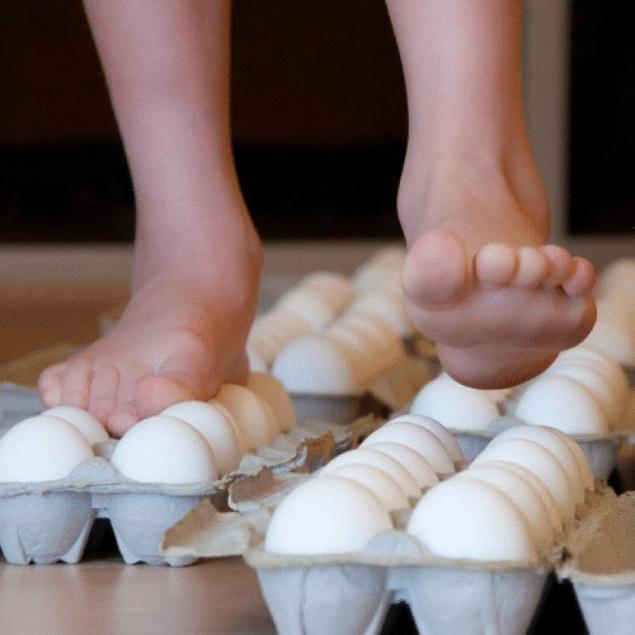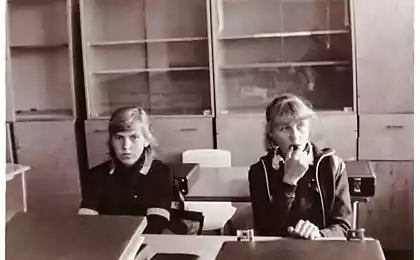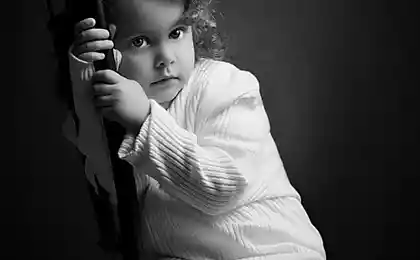520
Why do children climb "where it is not necessary"

Has it ever happened in your life that you were angry at the child because he took your stuff? Messed up something? Dropped?
Example 1. We are sitting at a table in a cafe. Eldest son (5 years old) ate, the youngest (2 years) still eats. Son bored of waiting, he begins to fidget in his chair, takes a salt shaker, spinning it in his hands. When I ask him to get out of the bag things I needed, with relief, puts a salt shaker on the scene and begins to help me.
Example 2. Catch son in the room facing svezheokrashennym Wallpaper with a red felt-tip pen in hand. The wall full of red dots from the marker. Naturally, I could not resist the question: "Why did you do that?" and, of course, received the logical reply: "don't know".
Example 3. I study English. It's not that boring, but the hype is not observed. On the table are pencils and the forgotten youngest son clay. The son replies to my questions, asking me questions, but as his hands remain free, he takes a pencil and pokes them into the clay.
What is common in these examples? And how to be a parent? To scold or not to scold?
First, try to understand why the child behaves this way.
To answer this question, we will help the theory of psychological field known German-American social psychologist Kurt Lewin. Kurt Lewin believed that a person's psychological field surrounds all of the items in this box have the valence. Moreover, it can be a positive valence (object attracts people) and negative (object repels people).

EXPERIMENT K. LEVIN
The subject was invited to participate in the study of memory. But before that, asked to wait in the waiting room. The room was laid out the items on the table lay a pencil, stood the bell, stood on the shelves of books, hanging charm beaded curtain etc. For the subjects in the room, watching through the glass Gisela (it's glass, which from one side is glass and the mirror). Levin was curious to know what will man do, left alone in the room. Without exception, all subjects (and in the experiment involved students and professors of the Berlin Institute of psychology) have produced various manipulations with objects. They leafed through the book, picked up and examined various objects, performed a finger across the bead curtain, and without exception rang the bell.
What made adults to commit senseless acts? K. Levin concluded that in a time when people are not busy with important business (that is, quite simply, bored), human behavior becomes "situational" or "field".
FIELD AND VOLITIONAL POVEDENIEM this experiment K. Levin concluded that there are two types of behavior: willed and field behavior. When the willful behavior of people exists in the psychological field and overcomes the forces of this field. On the contrary, if the field behavior of the person falls into the power fields. Let me explain with an example. Imagine that you went outside with your child. On the Playground you found a baby in a hat with funny pompons. And I want to reach out and pull the bobble. You've got the power of "fields". Bobble has a positive valence, it attracts you. But you restrain yourself because you know that is not very well to grab hands of other people. This is willful behavior. And your child is experiencing about the same feelings. But he has another reaction. He walks over and pulls the kid for the pompon. He could not overcome the traction of the "field" and demonstrated field behavior.
Field behavior prevails in children of preschool age. Most often, the field behavior shows up in those moments when the child is bored. The child can walk around the room, and it will "attract" a variety of things.
WHAT TO DO?If we are talking about young children (kids up to 3 years), the entire responsibility for their behavior lies with the parents. So the simplest solution would be to organize the space so that the child could not get things he can't touch.
Children of preschool age (3-6 years old) can already learn to control himself. You can designate objects, which in any case can not take (e.g. phone or computer). If during class a child picks up objects, manipulating them (e.g., playing with pencils or build of them a house), this is an important signal for parents. First and foremost, please note that the content of the class. Often field behavior in preschoolers appears when they are bored. During class, clear all the excess and try to make this lesson interesting. Field behavior appears at the child when he had nothing to do, hence the painted Wallpaper, protruding from the socket pencils, etc. Help the child to find interesting, teach him to play and then he will be able to find something interesting to do!
Yulia Guseva
источник:karpachoff.com
Source: /users/1077
























